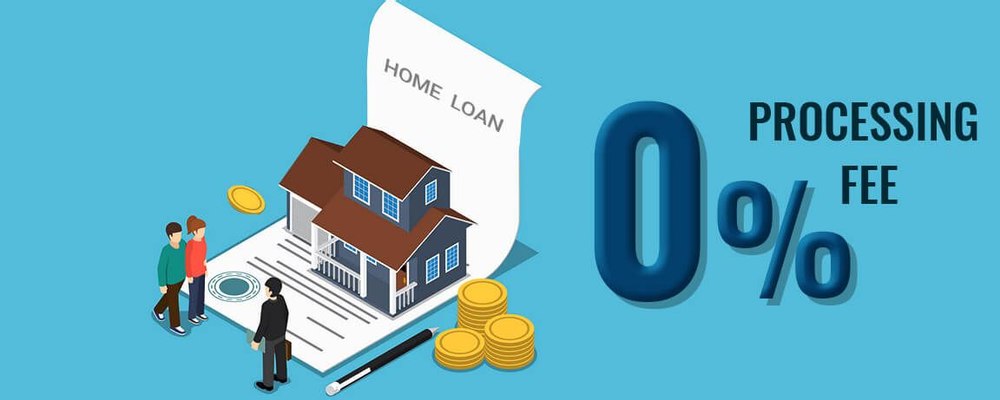Home loan processing fees And Hidden Charges

Securing a home loan involves more than simply covering the monthly EMIs. Beyond the principal loan amount, borrowers are also responsible for additional fees like home loan processing fees. These fees and other charges can be fixed amounts or percentages based on the loan total.
It’s also worth mentioning that these charges can differ among different lenders, whether they are banks, non-banking financial companies (NBFCs), or housing finance firms. As these charges contribute to the overall expense of the home loan, having a clear understanding of them is essential. So, let’s see what the charges are and understand them in detail!
Home Loan Processing Charges
The lender imposes home loan processing fees to account for the expenses of reviewing and evaluating your home loan request.
This fee is a singular payment required at the start after you have finalized the home loan interest rates – kotak and submitted the documents. While certain lenders maintain a fixed processing charge, others might levy a fee that could reach 2% of the total home loan value. But some selected lenders even offer the benefit of zero processing fees.
Conversion Charge
A conversion charge, or switching fee, comes into play if you switch between a fixed-rate and a floating-rate package or vice versa. This fee can vary from 0.25% to 3% of the balance, or the lender might set a fixed amount. Similarly, the conversion charge applies if you change from your current floating-rate package to a revised one.
NDC/NOC Charge
Getting a No Dues Certificate (NDC) or No Objection Certificate (NOC) requires a fee. The cost may range from zero to Rs. 500 per request. Also, revalidating the NOC from the bank might cost around Rs. 100 to Rs. 500. A similar fee applies if you need a duplicate NOC or NDC.
Charges for External Opinions
When a home loan application is being processed, lenders assess the property from both technical and legal standpoints. The lending institution imposes a set fee for this service, which the borrower must cover. These charges are then paid directly to the legal expert or technical appraiser, depending on the type of assistance provided.
The amount of these fees can differ depending on the type of external opinion needed, and they usually tend to be higher for more valuable properties. This process serves two main purposes:
Technical Assessment: By conducting a technical evaluation, the lending institution can determine if the property’s value aligns with the amount the borrower seeks.
Legal Assessment: The legal evaluation helps lenders confirm whether the property is free from legal issues or encumbrances.
Property Insurance
Choosing a home insurance policy is extremely important for anyone with a housing loan. Typically, the expense of this insurance ranges from 0.1% to 2% of the property’s value.
For instance, Imagine a borrower has decided to get a home loan for a property valued at Rs. 40 lakhs, and the premium rate is set at 0.1%. In this case, they would need to pay a premium of Rs. 4,000.
Statutory or Regulatory Charges in Home Loans
Financial institutions offering housing loan products require borrowers to cover specific statutory and regulatory fees. The borrower is responsible for all these relevant home loan charges:
Stamp Duty: Stamp Duty is a tax applied to property documents during sales or purchases.
MOD (Maintenance on Demand): MOD is a charge paid by the borrower to confirm the property as collateral for the loan. Typically, MOD charges range from 0.1% to 0.5% of the loan amount.
MOE (Memorandum of Entry): A Memorandum of Entry is a declaration with the bank stating that the borrower has handed over the original property documents to use as security for the loan.
CERSAI Charges: CERSAI charges are fixed and depend on the loan amount. They range from Rs. 50 for loans up to Rs. 5 lakhs to Rs. 100 for loans above Rs. 5 lakhs.
In addition to these charges, any other fees imposed by statutory or regulatory bodies and applicable taxes must be paid (or refunded, as the case may be) solely by the borrower.
Additional Charges in Home Loans
Costs for Late Payments: Lending institutions may impose an extra fee on the housing loan interest rate when borrowers don’t make their EMIs according to the repayment schedule with the help of home loan emi calculator – kotak. For home loans, the charges for late payments can be quite high, reaching up to 24% per year of the outstanding loan amount.
Agreement Copy Fee: The bank pays this fee if you want a duplicate of your loan agreement. The cost ranges from zero to Rs. 500.
Fee for Issuing Amortisation Schedule: To receive a comprehensive amortisation schedule detailing your loan tenure, a fee of 0 to Rs. 250 is applicable for each request.
Read Also: What is an ERP System?
Conclusion
When applying for a home loan, the last thing you’d want is to be caught off guard by many hidden home loan processing fees. Take the time to familiarise yourself with the various fees you must pay before and after your loan is approved. However, remember that these charges can differ based on individual borrowers. Therefore, it’s crucial to thoroughly review your loan documents before you finalise the agreement to ensure you have a clear understanding of the terms and fees involved.
Securing a home loan involves more than simply covering the monthly EMIs. Beyond the principal loan amount, borrowers are also responsible for additional fees like home loan processing fees. These fees and other charges can be fixed amounts or percentages based on the loan total.
It’s also worth mentioning that these charges can differ among different lenders, whether they are banks, non-banking financial companies (NBFCs), or housing finance firms. As these charges contribute to the overall expense of the home loan, having a clear understanding of them is essential. So, let’s see what the charges are and understand them in detail!
Read More: https://www.hituponviews.com/





